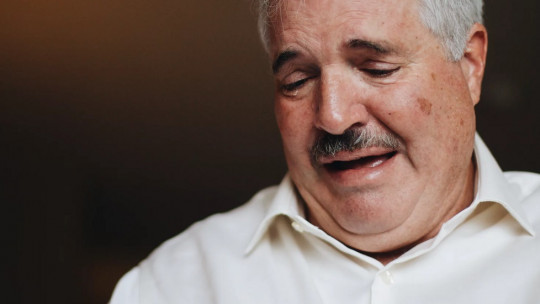Losing a loved one, whether a family member or a pet, is one of the most emotionally painful experiences, but that does not mean that it is a psychological disorder. Feeling that feelings of nostalgia, sadness and nostalgia overwhelm us is normal, but at the same time, it is something that we can learn to manage through our way of interpreting this situation, and through our habits.
If you are going through something like this or know someone who is grieving, keep reading; here we will talk about several psychological aspects that help go through grief.
6 psychological keys to manage and overcome grief due to the loss of loved ones
These are several key ideas to keep in mind to manage grief in the best possible way.
1. Grief is a process of adaptation
Many people believe that going through a grieving process is about leaving a stage of life behind; However, you could practically say that it is the opposite: It is above all adapting to a new situation, based on all the experiences we have had up to that moment.
This means, among other things, that to overcome grief over the loss of a loved one, we must not forget; Trying to do so would make the situation worse, as we will see. The way in which we should relate to the memories we have with that person or pet cannot be based on the denial of these (as if we had never gone through those experiences) but on the re-interpretation of what we remember, from our current situation. .
2. Do not try to block thoughts
This idea is derived from the previous one, and has to do with the “white bear effect”: If we try to keep certain thoughts out of our consciousness, we actually give them more power. to interfere with it and appear again and again in our minds in the form of intrusive thoughts. In turn, the discomfort that this causes us contributes to us fearing those memories or thoughts, further reinforcing the problem.
Therefore, it is important not to become obsessed with not thinking about the loved one we have lost. However, that does not mean that it is inadvisable to decide to spend the first days of mourning not exposing yourself to certain objects or places that remind us of that person, as long as doing so does not involve making a lot of effort (which would lead us to become obsessed with it). .
3. Funeral rituals often help
The vast majority of human cultures perform funeral rituals, and this is not by chance. These are practices that help represent a closure of the cycle after the death of a person. and they also create the appropriate context to receive emotional support from others.
Furthermore, it is not necessary that these rituals always be those dictated by the tradition of the hegemonic culture in which one lives, nor that they be linked to a specific religion. The important thing is that we are able to see meaning in them and that they allow us to participate in a community event, if we want to.
4. Talk about that loved one with others
Talk about that person or pet helps you stop always remembering it through the filter of the same feelings (many of which make us uncomfortable) and make our way of thinking about it full of nuances. For example, it is likely that other people less affected by the loss make us remember funny or funny anecdotes experienced with someone who is no longer there, or interesting and intellectually stimulating situations, etc.
5. Reflect on what that loved one has given you
Knowing that the presence in our lives of that loved one has helped us mature in some way and has allowed us to learn things is a good way to manage grief; that way, We become aware that it has not completely disappeared, and that its existence has left a positive mark on us. Somehow, she is still present through the memories she has left us.
6. If the situation lasts for weeks, go to psychotherapy
In most cases, grieving for the loss of loved ones is a painful process but one that resolves by itself in a matter of days, and does not involve developing psychopathology. If this is not the case and you notice that you feel great discomfort that overwhelms you for several weeks, Get in touch with psychotherapy professionals.
Are you interested in having psychotherapeutic assistance?
If you are suffering from emotional, behavioral or cognitive problems, we can help you from our team of professionals. In Vibra Wellness We offer psychotherapy and also meditation sessions, yoga, physiotherapy, and nutrition advice, and we serve both in person at our facilities in Madrid and through online sessions by video call.









